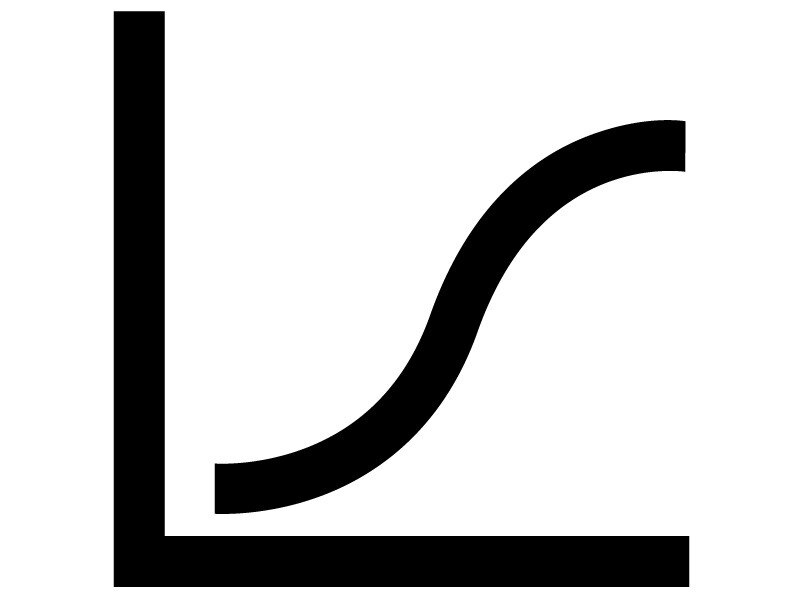Global Asset Allocation Perspectives
April 2024
To help guide the positioning of Scotia Portfolio Solutions, the Multi Asset Management team of Scotia Global Asset Management meets regularly to discuss and debate the current macro environment and what it means for portfolio positioning. The following report captures the team’s current views.
Key macroeconomic themes
Global economic themes that are most likely to influence our views on portfolio asset allocation over the next 12-to-18 months.

Growth, while resilient, is expected to be challenged
Global growth will continue to be challenged in 2024 as the lagged impact of higher interest rates continues to play out. A recession can’t be ruled out, but we currently do not expect it to be deep or prolonged should it occur.

Inflation still a concern, rate cuts likely later in year
Disinflation will likely continue, but core inflation remains stubbornly high. In the first half of 2024, most central banks will likely remain cautious fearful of inflation reacceleration. In the second half, they will likely start cutting rates.

Risks remain
The impact of higher interest rates continues to be a source of risk and leading economic indicators point to further challenges down the road. The ongoing rally in equities has created the opportunity to take on a more defensive position given the uncertainty that remains in our outlook.
Asset allocation perspectives
Equity outlook

We recently shifted to a neutral view on equities given the abundance of conflicting economic indicators.
Global equity markets, led by the U.S., continued to rally and investor sentiment remains bullish. The continued resilience of economic activity in the short-term is countering expectations for a more meaningful slowdown. U.S. fiscal policy continues to be a key counter trend as government transfers have shifted to technology businesses and reshoring. Stubborn inflation and concentrated markets remain the key risks to monitor.
We’re keeping our ear to the ground to take advantage of opportunities to change our view should they emerge.
Fixed income outlook

We also have a neutral view on fixed income relative to equities as risks to both are roughly in balance.
Overall fixed income returns treaded into negative territory as investors dialed back their interest rate cut expectations which caused bond yields to rise over the quarter.
Attractive income over the longer term offered by current yields is countered by the risk of capital losses from potentially higher yields that may materialize over the coming quarter.
Within fixed income, we saw positive performance in the corporate and high-yield segments as credit spreads narrowed.
Canada

In Canada, higher interest rates have had a more meaningful impact on the economy and inflation when compared to the U.S. With that said, it is highly likely that the Bank of Canada will cut interest rates before the U.S. Federal Reserve, which may create near-term positive sentiment.
Generally, Canadian equities are also priced well below U.S. equities and longer-term secular tailwinds appear favourable. We are slightly overweight Canadian equities.
U.S.

In the U.S., core inflation remains stubbornly high, equities continue to see positive momentum and economic growth remains resilient. The U.S. market appears best positioned to weather a global slowdown relative to other regions.
Despite stretched valuations, U.S. equities appear poised to continue to benefit from several growth themes, most notably artificial intelligence, manufacturing reshoring and renewed infrastructure investment. We are overweight U.S. equities.
International

We continue to have a bearish view on the Eurozone. Structural headwinds in global competitiveness, coupled with uncertainties regarding the sustainability of exports to China, contribute to this negative outlook.
Japanese equities are likely to outperform over the medium term as the Yen remains weak and demand for Japanese equities remains strong. However, this is not enough to offset our Eurozone concerns. Overall, we are underweight international equities.
Emerging Markets

The Chinese Government continues to signal for policy easing and additional stimulus. Its property sector continues to be challenged. Emerging markets outside of China showed signs of robust growth and positive earnings.
Overall, emerging market equities have underperformed year-to-date and are relatively cheap. We maintain a neutral view on emerging market equities given heightened geopolitical risks and the uncertainty of Chinese growth.
For further information, download the full Global Asset Allocation Perspectives Report.
All data as of March 31, 2024.
Commissions, trailing commissions, management fees and expenses may be associated with mutual fund investments. Please read the prospectus before investing. Mutual funds are not guaranteed or insured by the Canada Deposit Insurance Corporation or any other government deposit insurer; their values change frequently, and past performance may not be repeated.
This document has been prepared by Scotia Global Asset Management and is provided for information purposes only. Views expressed regarding a particular investment, economy, industry or market sector should not be considered an indication of trading intent of any of the mutual funds managed by Scotia Global Asset Management.
These views are not to be relied upon as investment advice nor should they be considered a recommendation to buy or sell. These views are subject to change at any time based upon markets and other conditions, and we disclaim any responsibility to update such views.
Information contained in this document, including information relating to interest rates, market conditions, tax rules, and other investment factors are subject to change without notice and Scotia Global Asset Management is not responsible to update this information. Nothing in this document is or should be relied upon as a promise or representation as to the future.
Readers should consult their own professional advisor for specific financial, investment and/or tax advice tailored to their needs to ensure that individual circumstances are considered properly and action is taken based on the latest available information. This publication may contain forward-looking statements based on current expectations and projections about future general economic factors.
Views expressed regarding a particular investment, economy, industry, or market sector should not be considered an indication of the trading intent of any of the mutual funds managed by Scotia Global Asset Management. These views are not to be relied upon as investment advice, nor should they be considered a recommendation to buy or sell. These views are subject to change at any time based on markets and other conditions, and we disclaim any responsibility to update such views. Information contained in this document, including information relating to interest rates, market conditions, tax rules, and other investment factors are subject to change without notice, and Scotia Global Asset Management is not responsible to update this information. Nothing in this document is or should be relied upon as a promise or representation as to the future.
Forward-looking statements are subject to inherent risks and uncertainties which may be unforeseeable and such expectations and projections may be incorrect in the future. Forward-looking statements are not guarantees of future performance and you should avoid placing undue reliance upon them. This publication and all the information, opinions and conclusions contained herein are protected by copyright. This publication may not be reproduced in whole or in part without the prior express consent of The Bank of Nova Scotia.
To the extent this document contains information or data obtained from third party sources, it is believed to be accurate and reliable as of the date of publication, but Scotia Global Asset Management does not guarantee its accuracy or reliability.
Scotia Global Asset Management is a business name used by 1832 Asset Management L.P., a limited partnership, the general partner of which is wholly owned by Scotiabank.
Scotiabank® includes The Bank of Nova Scotia and its subsidiaries and affiliates, including 1832 Asset Management L.P. and Scotia Securities Inc.
ScotiaFunds® and Dynamic Funds® are managed by Scotia Global Asset Management. ScotiaFunds and Dynamic Funds are available through Scotia Securities Inc. and from other dealers and advisors. Scotia Securities Inc. is wholly owned by The Bank of Nova Scotia and is a member of the Canadian Investment Regulatory Organization.
® Registered trademarks of The Bank of Nova Scotia, used under licence.
© Copyright 2024 The Bank of Nova Scotia. All rights reserved.
This document has been prepared by Scotia Global Asset Management and is provided for information purposes only. Views expressed regarding a particular investment, economy, industry or market sector should not be considered an indication of trading intent of any of the mutual funds managed by Scotia Global Asset Management.
These views are not to be relied upon as investment advice nor should they be considered a recommendation to buy or sell. These views are subject to change at any time based upon markets and other conditions, and we disclaim any responsibility to update such views.
Information contained in this document, including information relating to interest rates, market conditions, tax rules, and other investment factors are subject to change without notice and Scotia Global Asset Management is not responsible to update this information. Nothing in this document is or should be relied upon as a promise or representation as to the future
Views expressed regarding a particular investment, economy, industry, or market sector should not be considered an indication of the trading intent of any of the mutual funds managed by Scotia Global Asset Management. These views are not to be relied upon as investment advice, nor should they be considered a recommendation to buy or sell. These views are subject to change at any time based on markets and other conditions, and we disclaim any responsibility to update such views. Information contained in this document, including information relating to interest rates, market conditions, tax rules, and other investment factors are subject to change without notice, and Scotia Global Asset Management is not responsible to update this information. Nothing in this document is or should be relied upon as a promise or representation as to the future.

